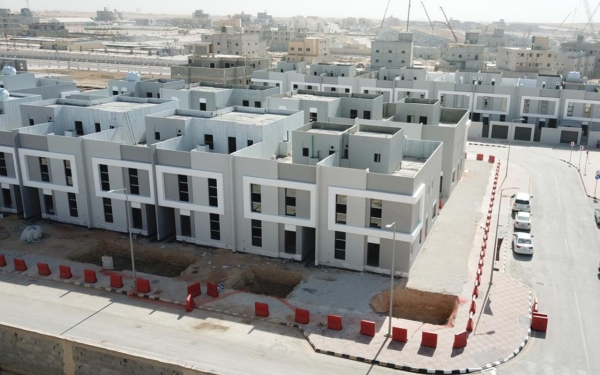

Real Estate Mortgage in the Kingdom of Saudi Arabia is one of the financing products that contribute to providing financing to beneficiaries, including individuals, institutions, and companies, for the purpose of owning real estate. Ownership serves as a guarantee for the borrowed funds. This entails securing the real estate with another party or entity as a condition for obtaining a loan, debt, or other financial obligations until the debt is fully repaid, and the property is subsequently reclaimed.
Issuance of the Real Estate Mortgage Law in the Kingdom
A law has been enacted concerning real estate mortgages, aiming to define terminology and regulate and safeguard the interests of all involved parties within a legally enforceable framework. According to the Real Estate Mortgage Law, a real estate mortgage is defined as a contract registered in accordance with the provisions of this Law, by which the mortgagee acquires a right in rem in a certain registered real estate. Pursuant to such right, the mortgagee’s debt shall be met in preference to other creditors with respect to the price of that property irrespective of who possesses it. The mortgage is subordinate to the underlying debt, thus ceasing to exist once the debt obligations are fully discharged.
Benefits of the Real Estate Mortgage Law
The issuance of this law, aimed at expediting financial procedures, was spurred by the bustling real estate sector in the Kingdom. Its perks include a flexible repayment schedule, ample funding, and the option for early repayment. The law is one of the most important projects adopted by the Shura Council in 2008. It is a practical step to create a specialized financing sector capable of creating organized mechanisms for housing provision.
The Real Estate Mortgage represents one of the six approved methods by the Saudi Central Bank to obtain real estate financing in the Kingdom. Real estate loans are significant indicators reflecting the development of supply in the real estate market and their correlation with the process of constructing residential and commercial units, or acquiring and developing residential land.
Funding through mortgage of real estate is conducted in accordance with the law and adheres to the directives and policies of the Saudi Central Bank. This type of funding is defined as a loan wherein the borrower receives money in exchange for a mortgage for a specific period, serving as a guarantee to the creditor until the agreed-upon installments are fully paid. Consequently, if the borrower is unable to make payments, the creditor retains the right to undertake necessary procedures to acquire the property.
Regulation of real estate funding sector in the Kingdom
In accordance with the executive and procedural regulations pertaining to this type of funding, the bank has mandated financing entities to document mortgages in alignment with the current terms of contracts, and to halt procedures associated with the transfer of property ownership, focusing instead on its mortgage. Moreover, it enables the borrower to register the property in their name while it remains mortgaged to the banks. The borrower can only dispose of the property after consulting the bank to safeguard the rights of all parties involved in the contract.
The Saudi Central Bank continues its role in monitoring and supervising various funding operations, including real estate mortgages. It works to regulate the real estate funding sector, establish the necessary controls for practicing real estate funding activities, and protect the rights of its dealers. The bank emphasizes the importance of dealing only with parties licensed by it to avoid any financial or legal problems that may affect the stakeholders.
The Registered Real Estate Mortgage Law was issued by Royal Decree in 2012 and came into effect immediately upon its approval. Article one of the law stipulates that if the property is registered in accordance with the provisions of the Real Estate Registration Law, the mortgage registration shall comply with the provisions of that law. For real estate mortgages not registered under the Real Estate Registration Law, they shall be registered by marking an entry into the record with the competent court or notary public.
Real Estate mortgage terms in the Kingdom
The Real Estate Mortgage Law, from the second to the tenth article, encompasses the essential terms that must be fulfilled in a mortgage. For instance, the creditor must be the owner of the property being mortgaged and must have the authority to dispose of it. Additionally, the mortgagor may be the debtor himself or a real guarantor presenting a property to be mortgaged for the interest of the debtor even without the latter's permission.
Article Three of the law stipulates that if the mortgagor is other than the owner of the mortgaged property, the mortgage shall be subject to an official authorization by the owner, and the mortgage shall be created from the date of the authorization. In the absence of such authorization, the right to mortgage shall be enforceable with respect to the property only from the time said property is owned by the mortgagor.
The terms also include, according to Article Four, that the mortgaged property must be defined and existing or likely to exist, and it must be legally saleable. The mortgaged property must be clearly defined and described in the mortgage contract itself or in a subsequent contract, and it must be independently saleable in public auction. Moreover, Article Five stipulates that the mortgage shall include all appurtenances to the mortgaged property such as annexes, plants, and other facilities serving said property as well as any other constructions or improvements added thereto after concluding the contract unless agreed otherwise, without prejudice to third party rights related to such appurtenances.
According to the law, the mortgage established by the owners of a commonly owned property shall remain effective irrespective of whether the mortgaged property is divisible or not. If a partner mortgages part or all of his commonly owned share, the mortgage shall apply to the part allocated to him after division.
For the further consolidation of the law and the preservation of rights, if a partner mortgages part or all of his commonly owned share and his share, after division, includes property other than the mortgaged, then the mortgage shall apply to a portion of said property equivalent to the value of the portion originally mortgaged. Such portion shall be determined and registered pursuant to a decision issued by the competent judge. Also, the law points out that amounts due to the mortgagor, in lieu of his share or resulting from the price of the mortgaged property, shall be allocated to pay off the debt secured by the mortgage.
According to the law, prior to maturity of debt, the mortgagee in a common mortgaged property may not demand division of said property without the consent of the mortgagor. Upon maturity of debt, however, the mortgagee may demand the sale of the mortgaged share in its common status or demand division without the consent of the mortgagor.
The law stipulated that the consideration for mortgage must be an established debt, a specified debt promised to be paid, a real property secured by the debtor, or a debt certain to be realized such as a conditional debt, future debt, or probable debt, provided that the amount of the secured debt or the maximum limit of such debt shall be specified in the mortgage contract.
The law also showed that each part of the mortgaged property shall secure the entire debt, and each part of the debt shall be secured by the mortgaged property unless agreed otherwise
Period of mortgage correction and authentication
Within the framework of the Saudi Central Bank's oversight and in accordance with procedures of the law, the bank issued a decision in 2021 to extend the period for correcting and documenting real estate mortgages for financing entities. Previously, in 2018, financing parties were required to correct real estate mortgages based on contractual terms. The correction and documentation of real estate mortgages must be conducted through the available channels for correction.
In its circular issued three years prior to that, the bank urged the prompt documentation of real estate mortgages and requested a halt to procedures related to transferring property ownership instead of mortgaging it. It emphasized to banks and financing companies the immediate referral of any notary documents refusing to register the real estate mortgage to it.
Related quizzes

